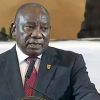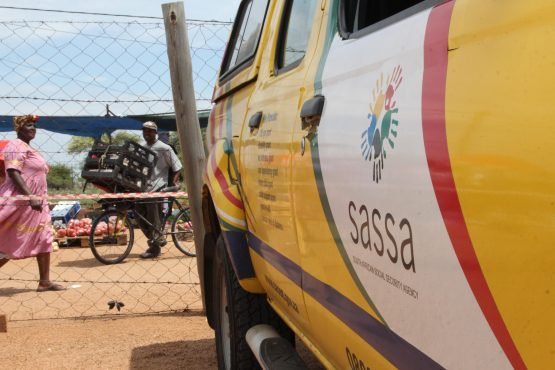-
play_arrow
On The Street On The Air | Kaya 959
- home Home
- keyboard_arrow_right CURRENT AFFAIRS
- keyboard_arrow_right Posts
- keyboard_arrow_rightWhat southern Africa can learn from other countries about adapting to drough
What southern Africa can learn from other countries about adapting to drough
By: Andrew Slaughter, University of Saskatchewan and Sukhmani Mantel, Rhodes University
The Melbourne skyline. Water saving habits adopted during a prolonged drought that ended in 2009 are still followed. EPA-EFE/Joe Castro
Rainfall in South Africa is naturally highly variable with total amount of precipitation very different between years and across the country. Total annual rainfall in southern Africa doesn’t seem to have changed much over the last century since measurements began. But it has become more variable: droughts and floods are more frequent than before. The region’s urban authorities, industries, farmers and other citizens will have to adapt to these conditions.
The experience of other countries may offer useful lessons. Not all will be applicable, given southern Africa’s limited financial resources. For example, southern African countries cannot afford wasteful expenditure on infrastructure, so we must be sure that our predictions of future water demand and changes in water availability have low uncertainty. Individual low-income households in southern Africa cannot afford some of the water-saving technologies used in developed countries. So it needs to adopt simple, but effective solutions.
Some arid countries have been forced to develop novel technologies and strategies to survive extremely dry conditions. Australia and Israel, for example, have become more resilient as climate change has brought more frequent droughts.
Two thirds of Israel’s land surface is desert and the remainder is arid. Yet, the country has found ways to manage water shortages. Australia, too, has learnt how to cope. In particular, a drought from 1997 to 2009 forced Melbourne to take drastic measures to conserve water. Residents changed the way they used water – and that behaviour has persisted. On average, they still use only a quarter of the water used by the average Californian.
Israel and Australia
Israel has, over many decades, developed a centralised water management system. It has invested in continuous technological innovations, improvements in practice and development of long-term management plans.
The country’s infrastructure innovations include a scheme to supply water from the north to all parts of the country, drilling extremely deep wells and seawater desalination plants. Israel also reuses wastewater and compels people to use water-saving technology.
Its greatest innovation relates to irrigation. It has developed an efficient drip irrigation system that uses up to 75% less water than some other irrigation techniques.
For its part, Australia passed legislation that allowed the federal government to provide funding to Melbourne for an integrated response to the drought. It also allocated power to a regional water manager to force cooperation between water utilities, city agencies and reservoir managers.
It invested in infrastructure too, including a pipeline to deliver water and a desalination plant.
The government encouraged households to save water through technology and behaviour. It provided rebates for residential greywater (water that is relatively clean enough to be reused e.g. from bath, sink or washing machine, in contrast to black water which is water from toilets) systems for gardening, encouraged investment in rainwater tanks and implemented water restrictions.
Its marketing included simple elements like displaying reservoir levels on electronic billboards.
By 2010, Melbourne residents and businesses were using only half the water they’d used in 1997. And this behaviour has continued, making the city more resilient to future droughts.
The way forward for southern Africa
It’s clear that southern Africa needs to take action on a number of fronts.
Countries need to pass new laws that make an integrated response to drought possible. They need to invest in infrastructure, which could include alternative sources of bulk water supply.
Our own study on how bulk water suppliers can adapt took into account the uncertainty associated with future climate change and development. We recommended adaptive management along with continual monitoring.
Adaptive management is a decision making process that reevaluates management processes and actions iteratively over time to adjust to changing conditions. For example, adaptive water management monitors the amount of water available due to variable climate (supply) and the quantity used over time (demand). In this way, trends in water availability and water use predicted by science can be confirmed or corrected by observations, and can more confidently guide infrastructure development.
The region should also invest in innovative ways of saving water. Some of these changes would be behavioural. Media such as television and billboards can be very effective in campaigns for change. Simple water saving technologies can be invested in, such as rainwater tanks.
Countries in southern Africa must also start using the water they have more efficiently. They can plan their water resources better, reuse wastewater and maintain infrastructure so as to reduce leaks and wastage.
![]() Agriculture uses a large amount of water, up to 70% of water usage globally. Adopting techniques such as drip irrigation could save a lot.
Agriculture uses a large amount of water, up to 70% of water usage globally. Adopting techniques such as drip irrigation could save a lot.
This article was originally published on The Conversation.
Written by: Natasha
Similar posts
-
MORE ARTICLES

Powerball Results: Draw Friday, 26 April 2024

Msaki returns with new music

WATCH: CEO of Known Associates Entertainment and Film producer, Tshepiso Chikapa-Phiri on movie productions

After 30 years of democracy, are we more united or divided?

Nestlé laces baby food in SA and other poor countries with sugar, report finds
-
QUICK LINKS
UpComing Shows

The Hive
With Bonolo "Bee Sting" Molosiwa
Every "Hive" needs a Queen B and Bonolo "Bee Sting" Molosiwa is Kaya 959's honey who brings in the money. With her bubbly personality, infectious laugh, Bee Sting radiates positive energy which is all you need to get your weekend off to the best start. Don't miss the Afrobeat Dancehall Ragga (ADR) Top 10 on The Hive with Bee Sting every Saturday from 18h00 - 21h00.
close
Tune and Chill
with Tyroline Franks
Tune and Chill with Tyroline Franks on Kaya 959. Weekends, Saturday and Sunday, 15pm-18pm.
close
On the Beat
On the Beat with George Manyosi on Kaya 959. Saturday's, 18pm-21pm.
closeConnect with Kaya 959
DownLoad Our Mobile App
© 2024 Kaya 959 | On The Street On The Air










